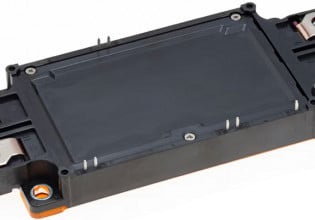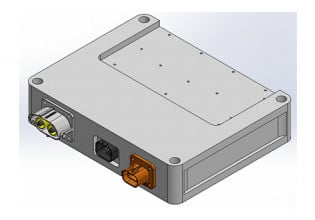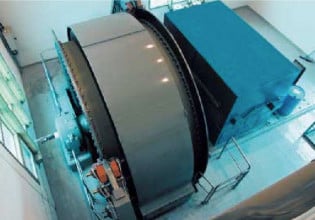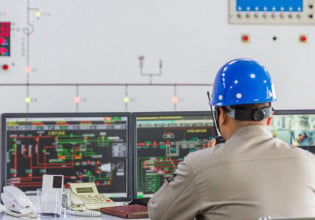Fraunhofer Setting Up a New Research Facility for Battery Cell Production
Energy storage systems are of crucial importance to all sectors of industry involved in the energy storage and mobility transition. The idea behind Germany's ‘Forschungsfertigung Batteriezelle' is to create a development center for battery cell production that will serve the whole of Germany. Known by its German abbreviation FFB, the new battery cell research facility will close the current gap in the value chain of primary and rechargeable batteries and eliminate the need to depend on other markets. The project team, which consists of the Fraunhofer-Gesellschaft and its research partners, is now embarking on the first steps to put the FFB concept into practice at the chosen location of Münster in the federal state of North Rhine-Westphalia.
The German Federal Ministry of Education and Research has allocated funding of around 500 million euros to the project, while the state of North Rhine-Westphalia has earmarked over 200 million euros to support the establishment and operation of the FFB. The state government will acquire the site in the Hansa Business Park from the local economic development agency Wirtschaftsförderung Münster GmbH and make it available for the Fraunhofer-Gesellschaft to use free of charge.
Over the past decade, Germany has regained its standing at the top of the international battery research league. Despite this, there continues to be widespread reluctance among German industrial concerns to enter the realm of high-volume battery cell production.
You may also like: Measuring Electrochemical Impedance of Multi-Cell Stacked Lithium-Ions
The FFB research facility aims to reduce technological hurdles and investment risks for companies by addressing knowledge gaps and fostering comprehensive expertise along the entire value chain from the production to the recycling of battery cells. To achieve this goal, it will rely on the expertise of local partners at the University of Münster as well as on RWTH Aachen and the Fraunhofer Groups for Materials, Production, Microelectronics, and Information and Communication Technology.
The FFB will focus on the production of modern, high-performance energy storage systems - not just for e-mobility, but also for applications in domestic settings, industry, logistics, the energy sector, chemicals, mechanical and plant engineering and robotics.
Close alliance creates nationwide resource
As a key driver of innovation, the Fraunhofer-Gesellschaft is a particularly good choice of organization to set up and operate a project on such an ambitious scale. The Fraunhofer-Gesellschaft's proposal for the first part of the project - to establish and put into operation an initial production line - has now been approved by the German Federal Ministry of Education and Research (BMBF), which has allocated funding of around 150 million euros.
"Battery technology is tremendously important because it is a key technology for Germany as a hub of research and industry," said Professor Wolf-Dieter Lukas, State Secretary at the BMBF. "The German federal government is determined to reinforce the country's leadership in battery technology along the entire value chain, and the FFB represents a key element in the BMBF's strategy to achieve this. Combining scientific expertise and a solid roadmap for the future, Münster is an excellent choice of location. We're delighted to see the first concrete steps being taken to bring this vital project to fruition."
"This is a great day for North Rhine-Westphalia," said Professor Andreas Pinkwart, State Minister for Economic Affairs and Energy, in Düsseldorf. "We invite scientists and companies from across the country to work together with the outstanding teams of researchers in Münster, Jülich and Aachen to help establish Germany's very own battery cell production operations. Together, we can create a solid framework that will enable us to develop modern energy storage systems for diverse climate-friendly applications in fields such as power grids, e-mobility and robotics and to create new value chains for industry."
North Rhine-Westphalia's State Minister of Culture and Science, Isabel Pfeiffer-Poensgen, was equally enthusiastic: "There is a huge amount of research expertise in battery technology and battery cell production in North Rhine-Westphalia. It is particularly strong in Münster, which is why this is such an ideal location for the rapid development and successful operation of the new FFB research facility. We're delighted that the excellent cooperation between Fraunhofer-Gesellschaft experts and the specialists in Münster, Aachen and Jülich will now be boosted still further by the opportunity to work together in the same location."
Professor Reimund Neugebauer, President of the Fraunhofer-Gesellschaft, emphasized the importance of these developments: "The FFB is a project of national and European significance. Energy storage systems form an integral part of the energy and mobility transition - and that makes them a key component of the primary sectors of industry that make Germany such a prized industrial location. What's equally important - especially in terms of international competitiveness - is our ability to maintain independence from other markets. That's why Fraunhofer is taking the opportunity of establishing the FFB to work even more closely with centers of battery expertise throughout Germany."
Battery cell research facility benefits Germany as a whole
The project team tasked with setting up the FFB comprises acting director Professor Jens Tübke from the Fraunhofer Institute for Chemical Technology ICT and the head of the FFB research unit, Helmut Schmidt. They have already begun work on the project in offices provided for free by the city of Münster, which are located close to the University of Münster's science departments.
Starting in February 2020, the researchers will be working with other colleagues to supervise the set-up of the FFB in the Hansa Business Park in the south of the city. By 2022, the team aims to establish a unique battery cell research facility that will serve the whole of Germany from this one location spread over some 40,000 square meters.
The FFB will be realized and operated by the Fraunhofer experts in collaboration with teams from the University of Münster's battery cell research center MEET - led by battery researcher Professor Martin Winter - and the Chair of Production Engineering of E-Mobility Components at RWTH Aachen, which is headed by production management researcher Professor Achim Kampker.






